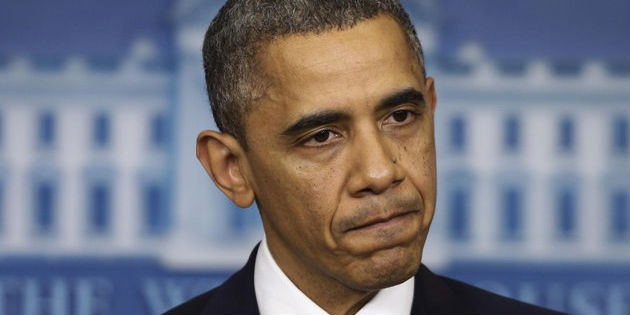It’s increasingly embarrassing—not to mention shameful—to watch President Obama and his press secretary, Josh Earnest, grasp for reasons to justify the president’s (1) willful and repeated refusal to enforce laws he doesn’t like and (2) his increasingly blatant efforts to circumvent Congress in order to do what he wants.
Videos By Rare
House Speaker John Boehner wants to do something about it. He writes in an opinion piece, “we will bring legislation to the House floor that would authorize the House of Representatives to file suit in an effort to compel President Obama to follow his oath of office and faithfully execute the laws of our country.”
But the question I hear most often from average Americans is why doesn’t Congress just impeach him?
There are reasons. Many Republicans—especially the House leadership—have some not-so-fond memories of impeaching President Bill Clinton in 1998 on charges of perjury and obstruction of justice related to the Monica Lewinsky affair.
Democrats and the media hammered Republicans over that impeachment effort, claiming it was nothing but an attack on Clinton’s personal life. The House voted to impeach him, but the Republican-controlled Senate needed a two-thirds vote to convict, and the vote fell short of that number.
So Clinton stayed in the White House, and today almost no one cares, or even remembers—except Republicans. Indeed, Clinton is one of the most popular Democrats in the country.
Since there is no chance of an impeachment conviction in the Democratically controlled Senate, House Republicans have wisely not taken that road. And yet they still want to highlight, and possibly curtail, Obama’s executive overreach. Hence, Boehner’s lawsuit.
But legal analysts are divided over whether the courts will grant the House “standing” in a suit, meaning that the plaintiffs can demonstrate being harmed. A GOP-aligned legal team thinks it has developed an argument that will work—and they might be right.
First, this isn’t the case of a handful of Republicans filing suit (as in the 1997 case of Raines v. Byrd), Boehner wants a majority of the House to vote for the legal challenge. That’s the same requirement for the House to impeach a public official.
Second, as one of the three co-equal branches of our government, the legislative branch is harmed if the president is unconstitutionally circumventing it.
Third, the Supreme Court has already issued numerous decisions against the president’s power grabs, several unanimously. So a majority of the justices may be open to making a broader statement about the Constitution’s system of checks and balances.
Whether Boehner’s lawsuit proves successful or not, the country needs a way to pushback against executive power grabs without having to impeach a sitting president. The way the legislative branch used to do that was by exercising its power of the purse.
If powerful committee chairmen wanted to send a message to the president that they were unhappy, they would slow-walk or postpone important legislative mark-ups until the president or an ally contacted the stalling chairmen to see what the issue was.
There was no grandstanding about the stalling; publicly, the chairman claimed he needed more time for hearings or to gather information, etc. It was part of the game.
Even critical budget bills were stalled until the relevant committee chairmen were satisfied. That’s what then-Senate Finance Committee Chairman Harry Byrd (D-VA) did when the newly installed President Lyndon Johnson wanted to pass John Kennedy’s tax cuts in 1964. Once Johnson made the concession—Byrd demanded spending cuts—the bill quickly moved through Byrd’s committee and on to the Senate floor and then to the president for signing.
And many of the former Senate majority leaders, such as LBJ and Robert Byrd, also closely guarded the Senate’s—and therefore Congress’s—power. They would never have been Obama’s doormat, like Harry Reid.
If Republicans take control of the Senate in November, both houses might be able to use the power of the purse once again, but they will have to be more effective than they have been in the past few decades. It takes guts because it means slow-walking or stopping critical legislation—without grandstanding and in the face of media criticism.
But that’s how it used to be done, maintaining that balance of power between the branches of government. And as a result, presidents were more respectful of Congress and the Constitution than is our current White House “constitutional scholar.”

